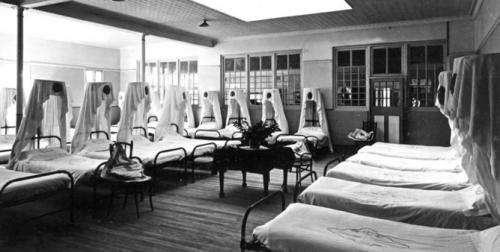Sexual assaults in psych wards show urgent need for reform

Women admitted to psychiatry wards experience high levels of violence and sexual assaults, according to a report released this week by the Victorian Mental Illness Alliance Council.
Across the nine different psychiatry hospital wards surveyed in Victoria, 85 per cent of female inpatients felt unsafe during hospitalisation, 67 per cent reported experiencing sexual or other forms of harassment and 45 per cent of respondents had experienced sexual assault during an in-patient admission.
The report further described that when the women patients reported the incidents, 82 per cent found the nurses to be "not at all helpful".
The report reveals two major areas of concern – first, that violence against women patients occurs commonly and second, that the incidents are not appropriately dealt with.
Mixed-gender wards
Prior to the 1960s, it was customary for men and women patients to be managed in separate psychiatry wards. Inpatient admissions were often for several months to years.
Since the 1960s, psychiatric inpatient units in many parts of the western world housed male and female patients together. The rationale for mixed gender wards was to mimic "normal" society as much as possible, since the psychiatry institutions became the patients' world for many years.
Deinstitutionalisation occurred in the 1990s in Victoria, with the mainstreaming of psychiatry wards into general hospitals and closure of the institutions. Psychiatric patients were managed in the community, with short stay admissions to psychiatry wards if required. On average, patients had two to three weeks of hospitalisation in mixed-gender wards.
This rapid turnover of patients and preference for community treatment has meant that hospital wards now treat acutely and severely unwell people, who cannot be treated in the community.
And the level of illicit drug and alcohol use in the inpatient population, both prior to and during hospitalisation, heightens the level of behavioural disinhibiton in this population.
These combined factors lead to a greater risk of aggression and assault, predominantly against women inpatients, who often already have a history of sexual abuse and other traumas.
UK reforms

In response to escalating assaults in inpatient units, the United Kingdom government adopted a strict policy of gender segregation on psychiatric wards in 2006.
This followed a national audit of violence in inpatient settings, which found one-third (36 per cent) of psychiatric inpatients had experienced, and almost half (46 per cent) had witnessed, violence on their current ward/unit.
Patients and staff had similar perceptions of the most common factors triggering violent behaviour: illicit drug and alcohol issues, staff behaviour, space and overcrowding, medication and treatment, and frustration and boredom.
The UK National Patient Safety Agency, in its audit of violence in the acute psychiatry ward between 2003-2005, specifically examined sexual safety, with 122 incidents relating to sexual safety reported. These included allegations of rape, with the alleged perpetrator (another patient) in 40 per cent of cases and a staff member in 60 per cent; consensual sex; exposure; sexual advances; and touching.
The report does not detail how many incidents involved women, but comment is made that both men and women are vulnerable.
Australia lags behind
Australian governments over the past decade have provided funding to reduce domestic violence and sexual assault in the general community and subsequently developed the Women's Safety Agenda in 2003.
The latest plan to combat violence against women sets out important programs in primary prevention, white ribbon campaigns, work with Indigenous communities and employment-related policies. But has no mention of action to be taken to prevent violence against women in psychiatric wards.
So why has violence against women in psychiatry wards been ignored?
For many decades, women with severe mental disorders were thought to be "too unreliable" to believe when they told their stories of harassment, assault and rape. Disempowered women patients, often with personal backgrounds of domestic violence, have been subjected to violence within a mental health system that is meant to care for them.
For a long time there was denial of this major issue by overstretched, under-resourced mental health systems, with an endemic culture of passivity about violence against women in psychiatric wards.
Over the past years, we have seen improvement in the reporting systems implemented in mental health services and better management of violence against patients, with some shift in the culture of inpatient units; but it is still not good enough.
Steps to reform
We need to take definitive actions to prevent violence occurring in our psychiatric inpatient units, not just implement mechanisms to report and manage the aftermath of assaults.
Investment in improved building designs of psychiatric wards is urgently needed, with special areas designated for women. Wards should be designed to be safe places of healing, with sensitivity for the traumatic backgrounds of many female patients. Privacy and safety measures can be designed into the structure of existing wards, and new units should be provide an individualised, safe space for each patient.
Importantly, the culture of psychiatry wards needs to change through staff gender-sensitivity training to ensure that the safety and privacy is provided and actively maintained for all patients.
Close monitoring of the situation by the general community and governments will ensure violence in psychiatry units is not tolerated.
The history of psychiatric institutions abounds with shameful stories of abuse and maltreatment of women. It's time to end violence against women in our present day psychiatry wards and provide the therapeutic environment these women need.
















